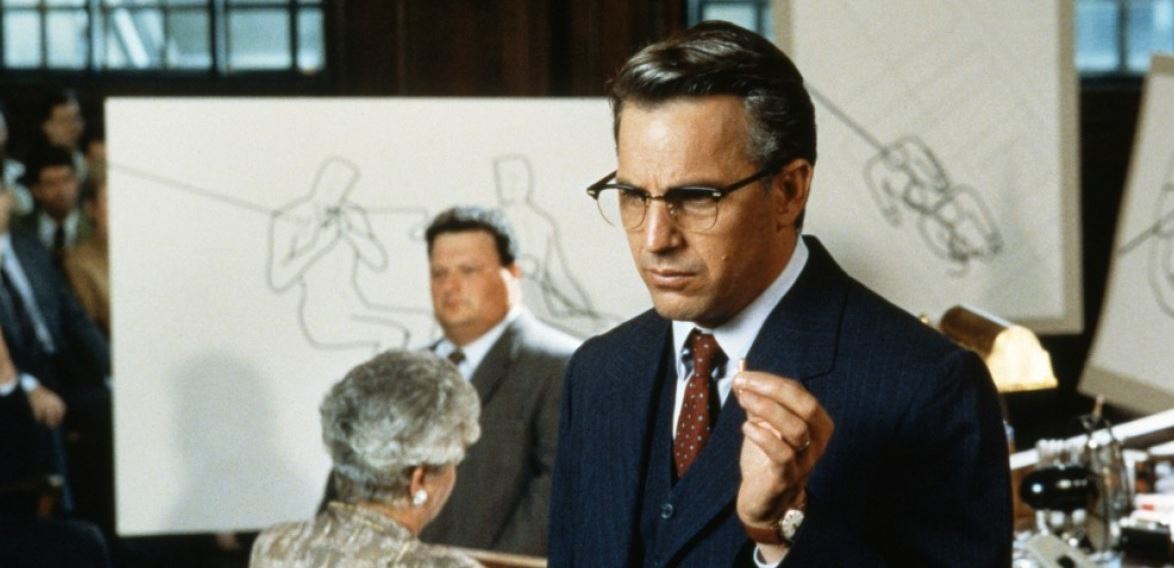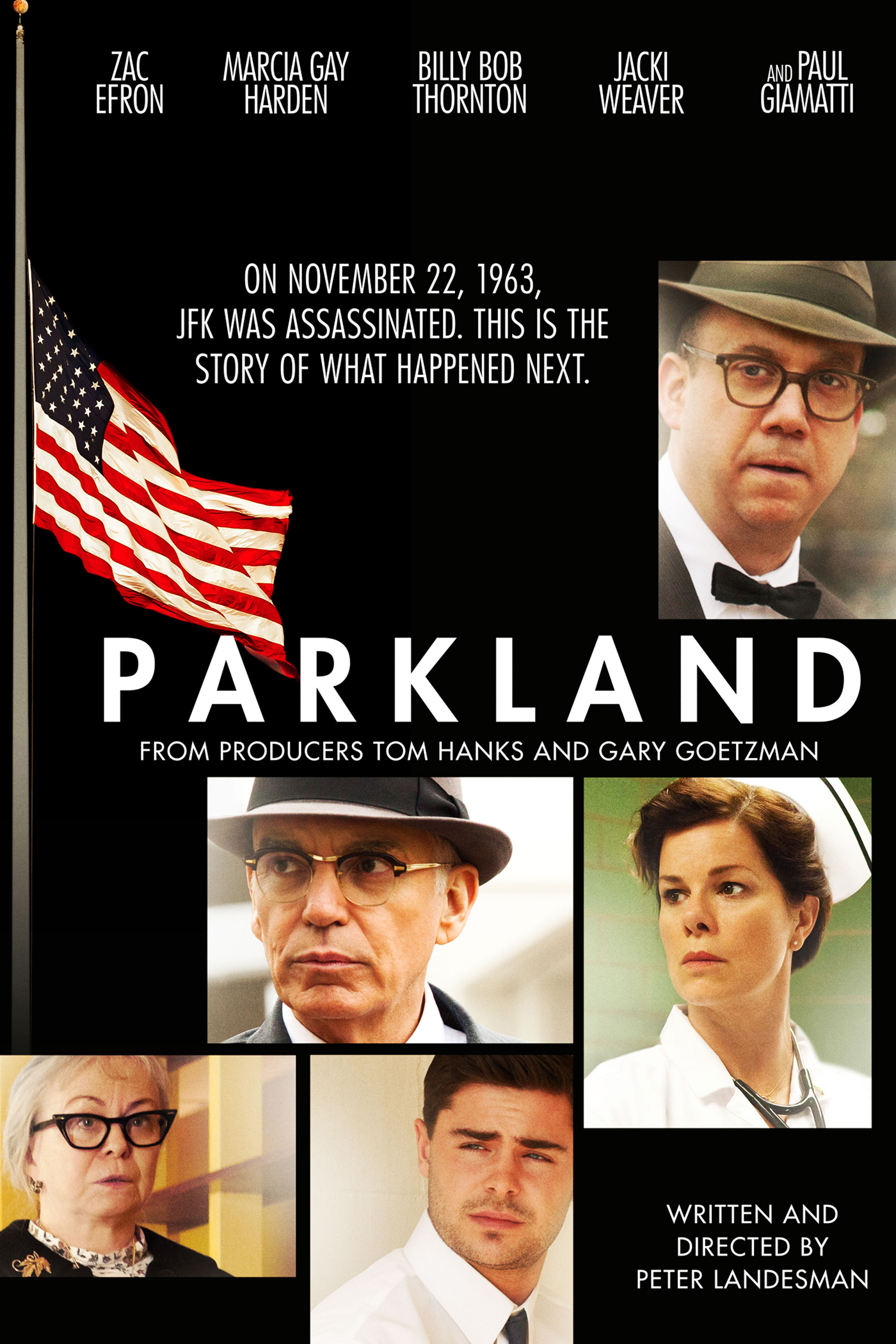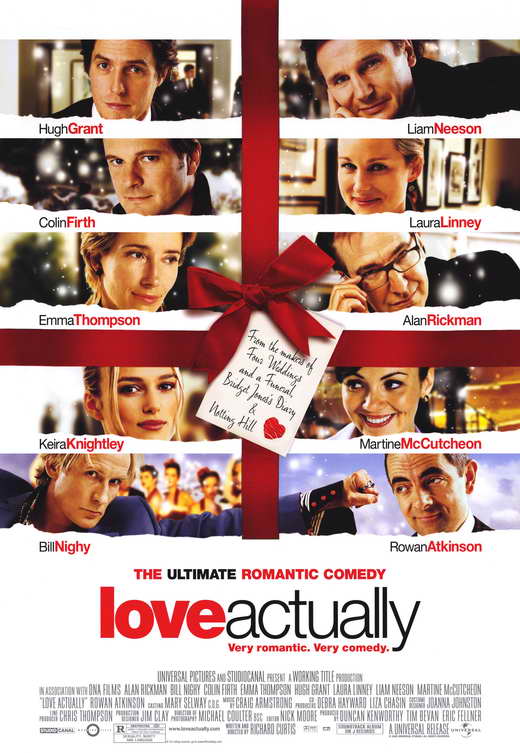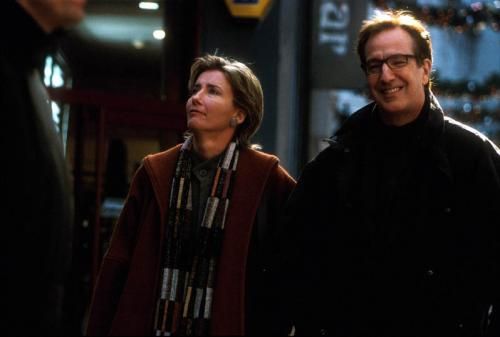

Director: Oliver Stone, 1991 (R)
2013 marks the 50th anniversary of the Kennedy
assassination. On November 22, 1963 President John F. Kennedy was shot in
Dallas during a motorcade. The fourth president of the USA assassinated, he was
the first lost on the watch of the Secret Service. His death changed the nation
and the nation’s politics. Even a half
century later, the interest in Kennedy’s death persists, undaunted. This is
evident from the clutch of new books issued in remembrance of this event,
including Jesse Ventura’s “They Killed our President” and Jerry Kroth’s “Coup
D’Etat” as well as the new movie Parkland.
More than ever, the mystery surrounding Kennedy’s death polarizes along the
lone gunman/multiple gunmen conspiracy spectrum.
Oliver Stone’s JFK may be his magnum opus. An epic in itself,
the director’s cut runs almost 3 ½ hours. But the 200 minutes are captivating,
not just due to the Oscar-winning editing and cinematography. Neither is it due
to the superb cast of Hollywood A-listers, including Kevin Costner, Tommy Lee
Jones (nominated for an Oscar here), Gary Oldman, Edward Asner, Jack Lemmon,
Walter Matthau, Ed Asner, Kevin Bacon, Joe Pesci, Donald Sutherland and Sissy
Spacek. Rather, through the use of flashback and interspersing of historic
footage, Stone brings a profound sense of conspiracy and mystery unfolding. It
leaves the viewer eager to learn more, to do subsequent research in the
literature. I certainly felt that way.
The movie begins with sound-bites from President
Eisenhower’s Farewell Address to the nation in January 1961: “We must guard
against the acquisition of unwarranted influence – whether sought or unsought –
by the military-industrial complex. We must never let the weight of this
combination endanger our liberties or democratic processes.” This, and the
title cards, set the context for the film, and the second half of the movie
sheds light on this.
The film focuses on New Orleans District Attorney Jim
Garrison (Kevin Costner). Like many other Americans, he hears about the
assassination from television news accounts. But it is only three years later
that he begins to question that government’s account of the death at the hands
of lone-gunman Lee Harvey Oswald (Gary Oldman). Since Oswald used to live in
New Orleans and had involvement with various anti-Castro organizations in his
city, he begins to investigate Oswald. With his team of assistant Das and
investigators, the search begins to uncover facts that dispute the government’s
account.
While Oswald is the center of the inquiry, it is not long
before Clay Shaw (Tommy Lee Jones), businessman and closet homosexual, comes
into the crosshairs, brought their by David Ferrie (Joe Pesci).
Little by little, other agencies seem to be
involved, from the CIA to the FBI as well as Naval Intelligence and the mob.
The screenplay (written in part by Stone) is based on
Garrison’s own book, “On the Trail of the Assassins.” And Garrison comes across
as a man on a mission, even if it is at the expense of his wife (Sissy Spacek)
and family. Once the JFK bug bites him, he cannot let it go. Weaving through
the dense web of lies and deceit, it is not until he travels to Washington DC
to meet mystery man X (Donald Sutherland, actually playing Fletcher Prouty, a
Colonel in Military Intelligence) that Garrison begins to understand the depths
of conspiracy he finds himself in. X tells him: “Fundamentally, people are
suckers for the truth. And the truth is on your side, Bubba.” Garrison comments
later, “Telling the truth can be a very scary thing sometimes.” He wants to
find the truth, and the American people are behind him, even if his government
is not.
People want to find truth. Lives cannot be built on lies.
Truth is found in Jesus Christ, “who came from the Father, full of grace and
truth” (Jn. 1:14). When we know the truth we can live in the light of truth
(Jn. 3:21). Then and only then do we find ourselves free (Jn. 8:32). Although
the enemy seeks to deceive, as the father of lies (Jn. 8:44), God shines his
light of truth on us; he wants us to cut away through Satan’s conspiracies.
X, though he only appears in one extended scene, helps
Garrison understand the motive behind Kennedy’s murder: “The organizing
principle of any society, Mr. Garrison, is for war. The authority of the state
over its people resides in its war powers. Kennedy wanted to end the Cold War
in his second term.” Garrison echoes this, “The war is the biggest business in
America, worth $80 billion a year.” This ties back to the comments from
Eisenhower at the start.
Stone’s movie hence ties the murder to the military-industrial
complex. And we see backroom meetings of key military leaders. Beyond this,
Stone posits that Lyndon Johnson, Kennedy’s Vice President, is involved,
extending the conspiracy to the highest levels of government. With his
ascendancy to the presidency, he reversed policy and moved to continue the Viet
Nam War, despite its cost in lives and dollars. Bombs and bullets brought
profit to the corporations supporting the military.
In contrast, biblically the organizing principle of God’s
society is peace. He sent his son to earth as the Prince of Peace (Isa. 9:6).
Though this first advent did not solve the world’s problems of wars, Jesus
offered internal peace and peace with God (Rom. 5:1). But after his second
advent and into eternity, there will be true peace in society. As Isaiah
prophecies, “They will beat their swords into plowshares and their spears into
pruning hooks. Nation will not take up sword against nation, nor will they
train for war anymore.” (Isa. 2:4)
It is in the latter stages, when Garrison takes Shaw to
trial, the only trial ever brought in relation to the Kennedy assassination,
that the movie presents indisputable evidence of conspiracy. In the best scene
of the film, Garrison comments on the so-called magic bullet:

The Warren Commission thought they
had an open-and-shut case. Three bullets, one assassin. But two unpredictable
things happened that day that made it virtually impossible. One, the
eight-millimeter home movie taken by Abraham Zapruder while standing by the
grassy knoll. Two, the third wounded man, James Tague, who was knicked by a
fragment, standing near the triple underpass. The time frame, five point six
seconds, determined by the Zapruder film, left no possibility of a fourth shot.
So the shot or fragment that left a superficial wound on Tague's cheek had to
come from the three shots fired from the sixth floor depository. That leaves
just two bullets. And we know one of them was the fatal head shot that killed
Kennedy. So now a single bullet remains. A single bullet now has to account for
the remaining seven wounds in Kennedy and Connelly. But rather than admit to a
conspiracy or investigate further, the Warren Commission chose to endorse the
theory put forth by an ambitious junior counselor, Arlen Spector, one of the
grossest lies ever forced on the American people. We've come to know it as the
"Magic Bullet Theory." This single-bullet explanation is the
foundation of the Warren Commission's claim of a lone assassin. Once you
conclude the magic bullet could not create all seven of those wounds, you'd
have to conclude that there was a fourth shot and a second rifle. And if there
was a second rifleman, then by definition, there had to be a conspiracy.
With this conspiracy supported, the question is who was
involved. Garrison argues that it had to reach to the highest levels and so
concludes that this was in fact a coup d’etat.
Even though the Warren Commission, led by Chief Justice
Warren, concluded that the assassination was the result of Oswald acting alone,
and that Jack Ruby (Oswald’s killer days later) acted alone, there is simply
too many unlikely coincidences for this to be likely. Witnesses killed in the
most suspicious circumstances. Autopsy results that simply don’t match the
evidence from the Dallas Parkland doctors who attended Kennedy’s death. The
killing bullet that entered from the front, despite Oswald firing from behind
Kennedy. The magic bullet that has to explain so many wounds that it has to
defy the laws of physics. Former Governer Ventura does a fine job of collecting
sufficient evidence to provide more than reasonable doubt of Oswald’s guilt.
Indeed, in contrast to the Warren Commision’s report, the US House of
Representatives Select Committee on Assassinations, established in 1976,
concluded that Kennedy’s death was the result of a conspiracy, although it did
not determine who exactly was involved.
Late in the film Garrison, frustrated with the thwarting of
his mission, declares to the press: “Let justice be done though the heavens
fail.” In the JFK murder, justice has not been done. The American people
deserve better. But Stone and Ventura and Kroth and many others have at least
opened the curtain on the great deception and conspiracy that has plagued the
country for 5 decades. Oswald could not have acted alone. He may not even have
been the shooter. His guilt, never proven in a court of law, may never be
undone. We may never know the real truth. And justice will surely never be
done.
Copyright ©2013, Martin Baggs
























